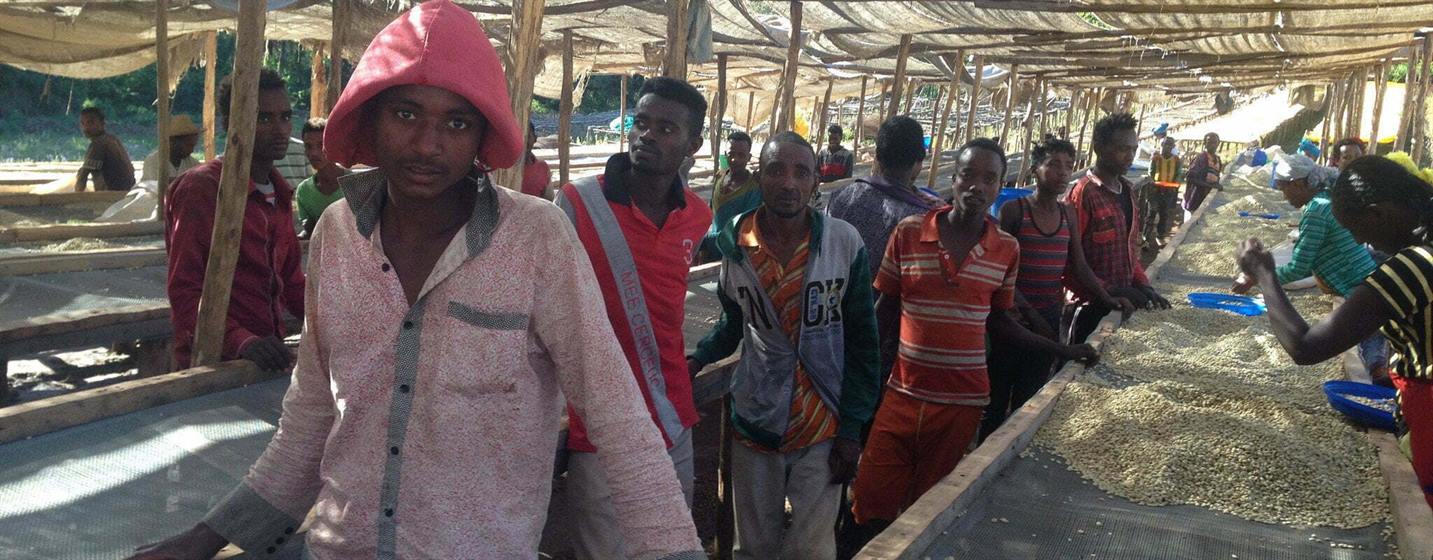We would like to thank you for your support this year, and wish you a great end of year, and 2019. We will be closing on December 21st (after the no-fire sale coffee has gone) and be reopening on the 7th Jan 2019.
This means last delivery day will be 20 December 2018 and the first delivery day of the new year 8th Jan 2019.
Coffee Processing
Continuing on from our last newsletter, where we discussed the fact that coffee is a seed, we thought we would introduce you to coffee processing. There are 5 basic methods of processing of which the top 3 are the most common. Namely:
- Natural or dry,
- Semi-natural, honey or pulp-natural process,
- Wet or fully washed,
- Monsoon process and
- Chemical / intestinal processing.
In this newsletter we will discuss the basics of natural processing.

Natural Processing
The natural process is most likely the oldest processing method, when it comes to coffee. During the process, the complete coffee cherry or fruit is used. Once the cherries are picked, they are sorted using colour (if quality is a driver). For cultivars that are red, only red cherries are used, yellow only yellow and orange only orange.
At this point one of three things happens. Ripe cherries are spread out:
- on either a flat surface like a roof, a patio or plastic sheeting or
- over raised beds, or trays and left in the sun or
- over a shaded raised beds or trays.
After this, the methodology used effects the final taste. If cherries are left to dry as is, they will start fermenting. Coffee cherries at the bottom of a pile ferment more than those at the top. If a farmer, producer or processor is meticulous, they will ensure cherries are moved or tossed regularly to prevent fermentation from becoming a dominant flavour or destroying the final coffee.
The best naturals are tossed at least once every two hours, allowing uniform dryness throughout the cherry, without the natural fermentation affecting the full taste in the cup.
In some regions, once the internal moisture level is between 20-30% the partially dried cherry is then removed from the drying area and mechanically dried at just over 30°C. When the moisture level is between 10 and 12% it is removed from the dryer.
It is however preferable for the coffee to be left to dry naturally and when it reaches an internal moisture level between 10 and 12%, then removed from the dying bed or patio.
A well processed natural will be sweet and juicy, like the Gishubi (or Gitwe below) we offer, or the new Yemeni coffee to be offered as part of the secret offering this month. If a natural is not properly processed it becomes dusty or funky in taste.
There is sometimes debate about whether or not natural coffees can produce a quality and clean cup, I believe you should be the judge.

New coffees Dec 2018
At Buitenverwachting
This month we have one new coffee on offer at Buitenverwachting. There are 2 others that may be released this month if we finish our other coffees. The main release is our first ever single estate coffee from Ethiopia (we have done a one from a single washing station – the Yirgacheffee Kochere, but never a single estate). The coffee from what is grouped as the Limu region in the West of Ethiopia, from the farmer Gidey Berthe. It is very rare to find a farmer that does it all in Ethiopia, and we really love this coffee.
You can read more and order it here: Ethiopian Limu Kossa.
At The Vineyard
At the Vineyard we have a new Guatemalan, and a new Burundi.
The Guatemalan we only have 2 bags and is from the Waykan project in the Huehuetenengo region of Guatemala. You can read more about it here: Guatemalan Waykan.
The Burundi is a natural Burundi from the Long Mile Project that is from a larger lot than the Gishubi (so a little less complex) called Gitwe, you can read more here: Burundian Gitwe natural.
Product offering
For those that are into the various products around the preparation of coffee, I just want to apologize. We are always assessing product and we will add them to our website. But we have learnt that it Is best to either keep stock or have quick access to stock, and this can delay us posting these products. In the pipeline is the Moccamaster (thermopot model only) and the Barista Hustle Tampers. We prefer to take our own pics and fully understand the products before we post them. So, if you are looking for a product drop us a line.



